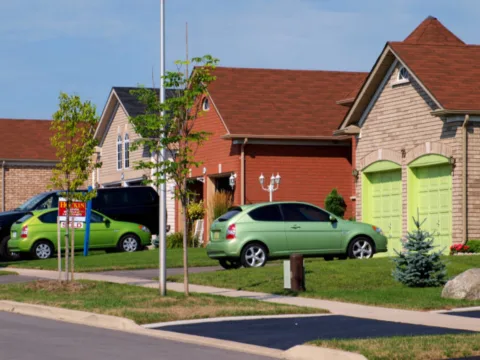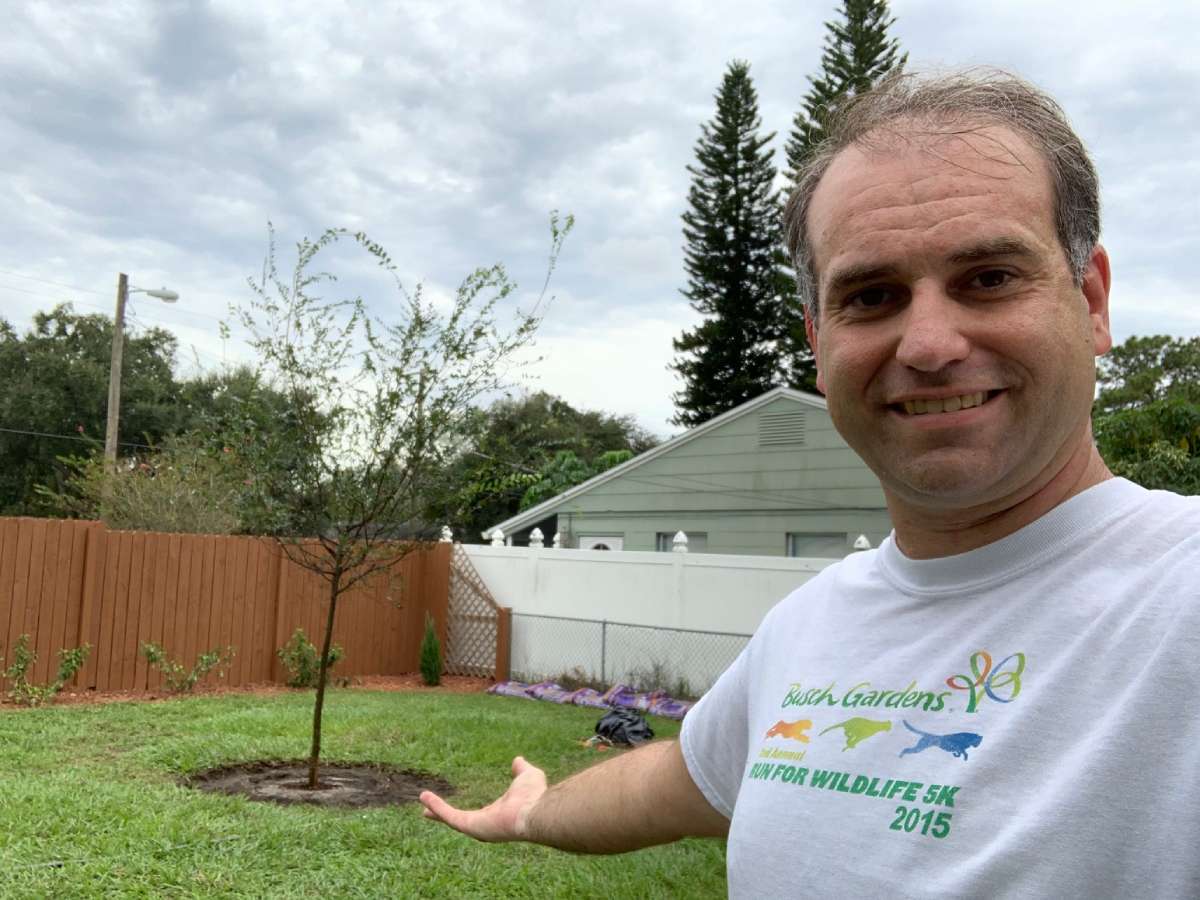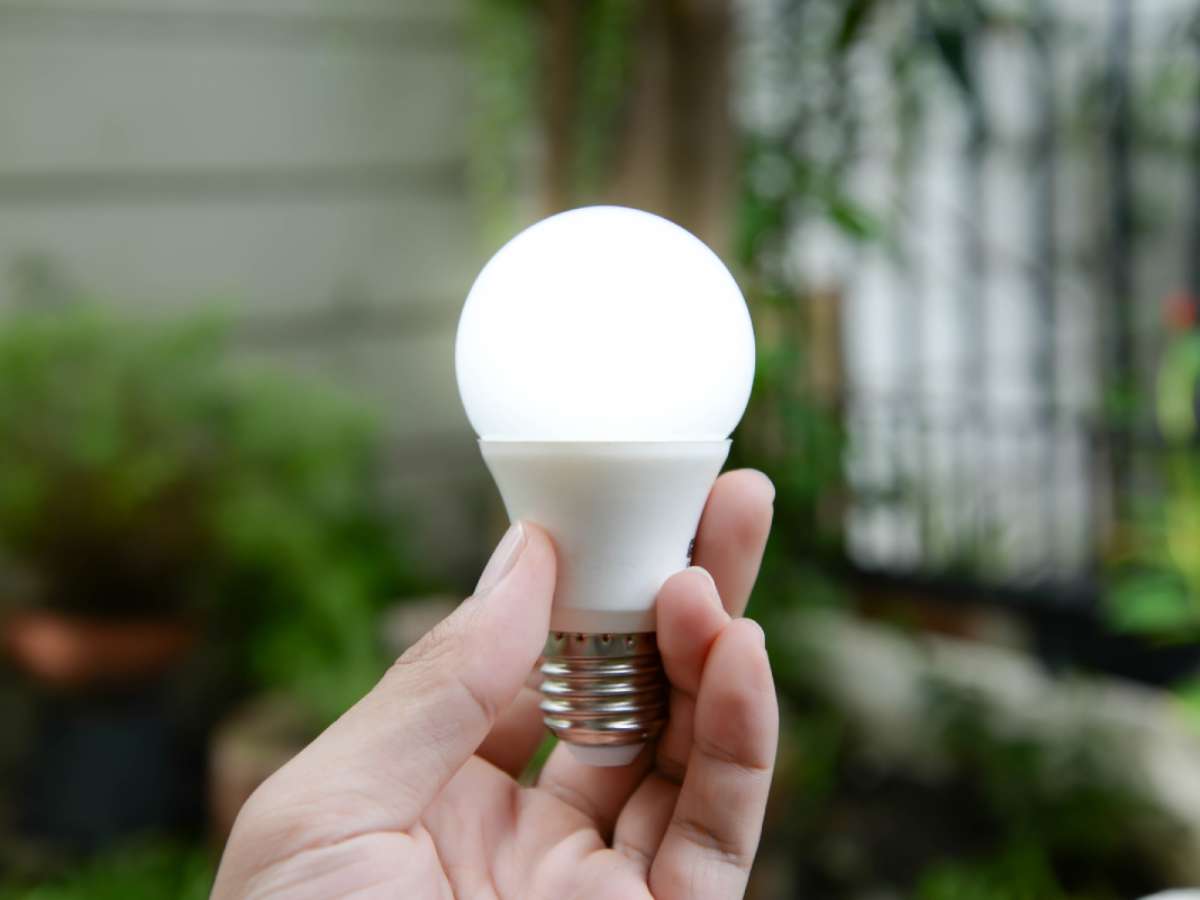What follows is a list of simple ways to be green in your everyday life.
They don’t cost a penny.
But they save a bunch!
Money-Saving Green Tips
![]() In the morning, draw the window blinds or curtains over east-facing windows. (The natural conservation of energy.)
In the morning, draw the window blinds or curtains over east-facing windows. (The natural conservation of energy.)
![]() In the afternoon, draw the window coverings over south- and west-facing windows. (Use passive solar energy.)
In the afternoon, draw the window coverings over south- and west-facing windows. (Use passive solar energy.)
![]() Unplug any rechargeable power tools that you seldom use. (The batteries in most cordless tools hold their charge for up to a year, and only lose a small amount of their charge each month.)
Unplug any rechargeable power tools that you seldom use. (The batteries in most cordless tools hold their charge for up to a year, and only lose a small amount of their charge each month.)
![]() Washing a full load of dishes in the dishwasher is more efficient than washing the same dishes by hand. (Run larger loads, and give up doing them by hand.)
Washing a full load of dishes in the dishwasher is more efficient than washing the same dishes by hand. (Run larger loads, and give up doing them by hand.)
![]() Let dishes air-dry in the dishwasher after running a full load. (Instead of using the dishwasher’s heat-dry setting.)
Let dishes air-dry in the dishwasher after running a full load. (Instead of using the dishwasher’s heat-dry setting.)
![]() Turn down the heat in your home, add logs in your fireplace instead. (Bonus points if you split the logs yourself!)
Turn down the heat in your home, add logs in your fireplace instead. (Bonus points if you split the logs yourself!)
![]() Put on a sweater, instead of turning up the heat in your home. (Socks & slippers help, too.)
Put on a sweater, instead of turning up the heat in your home. (Socks & slippers help, too.)
![]() Save on water by using the leftover water from boiled eggs to water your plants — indoors or out. (The calcium form the shells gathers in the water and creates the perfect antioxidant for your plants.)
Save on water by using the leftover water from boiled eggs to water your plants — indoors or out. (The calcium form the shells gathers in the water and creates the perfect antioxidant for your plants.)
![]() In the winter, open your window blinds or curtains to let in natural heat from the sun. Then, close them once the sun sets. (This could reduce your heating bills by 10%.)
In the winter, open your window blinds or curtains to let in natural heat from the sun. Then, close them once the sun sets. (This could reduce your heating bills by 10%.)
![]() In the summer, block out sunlight with exterior blinds, shutters, or awnings. (This will cut your cooling bills up to 33%.)
In the summer, block out sunlight with exterior blinds, shutters, or awnings. (This will cut your cooling bills up to 33%.)
![]() Move your refrigerator out of direct sunlight and/or away from the range. Both of those things force the fridge’s compressor to use up more energy than necessary. (If you can’t move it, at least block the sunny windows with curtains OR put as big of a buffer as you can between the fridge and the range.)
Move your refrigerator out of direct sunlight and/or away from the range. Both of those things force the fridge’s compressor to use up more energy than necessary. (If you can’t move it, at least block the sunny windows with curtains OR put as big of a buffer as you can between the fridge and the range.)
![]() Turn down the hot water temp on your washing machine. (They say that most perspiration and dirt dislodges at body temperature, so you don’t need water that’s warmer than 100 degrees.)
Turn down the hot water temp on your washing machine. (They say that most perspiration and dirt dislodges at body temperature, so you don’t need water that’s warmer than 100 degrees.)
![]() Instead of jotting notes on paper, use a dry-erase marker to write notes on the mirrors in your home. (Less paper waste.)
Instead of jotting notes on paper, use a dry-erase marker to write notes on the mirrors in your home. (Less paper waste.)
![]() Turn down the temperature on your hot water heater to around 120 degrees. (Most keep theirs set on 140 degrees.)
Turn down the temperature on your hot water heater to around 120 degrees. (Most keep theirs set on 140 degrees.)
![]() Wipe your feet at the door to drastically reduce the amount of grime tracked in. (Which means fewer pathogens that cause disease and less chemical cleanup.)
Wipe your feet at the door to drastically reduce the amount of grime tracked in. (Which means fewer pathogens that cause disease and less chemical cleanup.)
![]() Keep your refrigerator’s temperature between 37 and 40 degrees and your freezer’s temp between 0 and 5 degrees. (Stick an appliance thermometer in a glass of water in the center of your fridge — or between frozen foods in the freezer — overnight.)
Keep your refrigerator’s temperature between 37 and 40 degrees and your freezer’s temp between 0 and 5 degrees. (Stick an appliance thermometer in a glass of water in the center of your fridge — or between frozen foods in the freezer — overnight.)
![]() Make it a habit to change your furnace filters every 1-3 months. (Restricted air flow increases energy use.)
Make it a habit to change your furnace filters every 1-3 months. (Restricted air flow increases energy use.)
![]() Shut down your computer when you’re not using it. (Or, at least turn off the monitor when not in use.)
Shut down your computer when you’re not using it. (Or, at least turn off the monitor when not in use.)
![]() Take a trip through each room of your house and turn off or unplug any electronic gadgets that you don’t use regularly. (Some of the most wasteful energy is that consumed from appliances and electronics when they’re not in use.)
Take a trip through each room of your house and turn off or unplug any electronic gadgets that you don’t use regularly. (Some of the most wasteful energy is that consumed from appliances and electronics when they’re not in use.)
![]() Send less water down the drain by filling a plastic bottle with water and then placing it in the tank of your toilet. (This means less water is needed to refill the tank each time you flush.)
Send less water down the drain by filling a plastic bottle with water and then placing it in the tank of your toilet. (This means less water is needed to refill the tank each time you flush.)
![]() Instead of buying new or used items for your home or family, consider hand-me-downs from places like Freecycle, Craigslist, etc.
Instead of buying new or used items for your home or family, consider hand-me-downs from places like Freecycle, Craigslist, etc.
![]() Use scraps of paper, old envelopes, etc. to write notes on, instead of buying fancy notepads & sticky notes. (Any pieces of paper that are only printed on one side can be reused for notes, etc.)
Use scraps of paper, old envelopes, etc. to write notes on, instead of buying fancy notepads & sticky notes. (Any pieces of paper that are only printed on one side can be reused for notes, etc.)
![]() Take your own bags to the grocery store and use them to bag your groceries each time. (Depending on the type of bags you choose — plastic, paper, or canvas — you could get anywhere from 2 to 200 uses from each bag.)
Take your own bags to the grocery store and use them to bag your groceries each time. (Depending on the type of bags you choose — plastic, paper, or canvas — you could get anywhere from 2 to 200 uses from each bag.)
![]() Remember that several of the household products you probably already have on hand (baking soda, cornstarch, white vinegar, toothpaste) can be used as green cleaners for everyday spills and messes.
Remember that several of the household products you probably already have on hand (baking soda, cornstarch, white vinegar, toothpaste) can be used as green cleaners for everyday spills and messes.
![]() Use rags and cloth napkins instead of paper towels and paper napkins. (This reduces paper waste.)
Use rags and cloth napkins instead of paper towels and paper napkins. (This reduces paper waste.)
![]() When doing the laundry, use cold water as often as possible. (It works better at removing dirt & grit anyway.)
When doing the laundry, use cold water as often as possible. (It works better at removing dirt & grit anyway.)
![]() Use a wooden drying rack to air dry your clothing, instead of a clothes dryer. (Air is free.)
Use a wooden drying rack to air dry your clothing, instead of a clothes dryer. (Air is free.)
![]() Ride your bike instead of driving your car. (Give a hoot, don’t pollute.)
Ride your bike instead of driving your car. (Give a hoot, don’t pollute.)
![]() Block drafts underneath doors & windows with towels or rags. (Keep the cold air out.)
Block drafts underneath doors & windows with towels or rags. (Keep the cold air out.)





